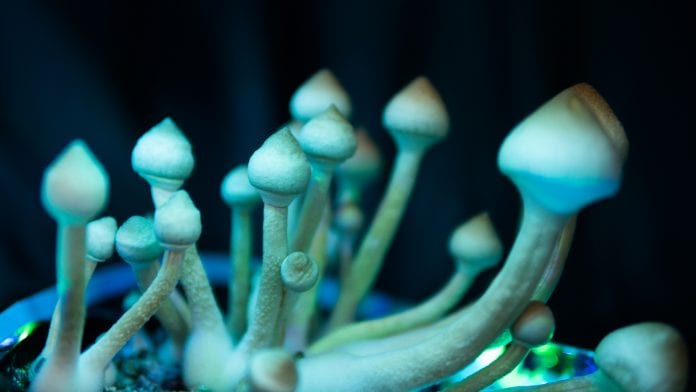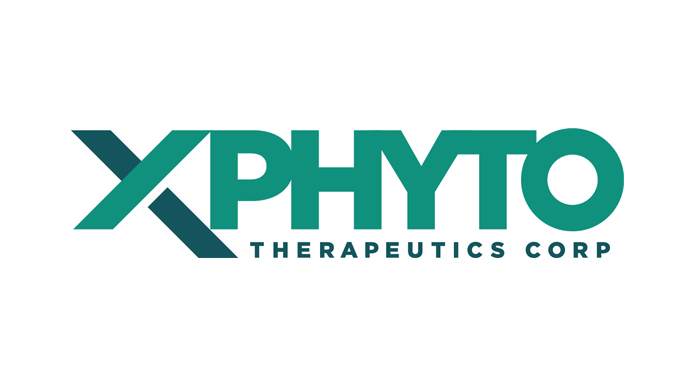
XPhyto Therapeutics Corp is exploring the role that psychedelic pharmaceutical drugs can play in combatting mental health conditions.
It’s a staggering statistic. A full 11% of American citizens have contemplated suicide since the outbreak of the COVID-19 pandemic. This is according to the US Center for Disease Control (CDC). Comparable figures have also been reported in the UK by the British Journal of Psychiatry.
All told, tens of millions of Americans and Europeans are suffering from chronic anxiety, depression, and even despair – a number that has been considerably exacerbated by the pandemic.
Yet, throughout history, humanity has always risen to the challenge when we are faced with an existential crisis. Besides the expedited development of effective vaccines in record time, this unprecedented Black Swan event has also yielded at least one extraordinary development in the treatment of mental health disorders. This entails the formulation of psychedelic compounds – such as psilocybin derived from “magic mushrooms” and mescaline derived from peyote and other cactus species – into mood-improving and therapeutic pharmaceutical drugs.
The role of psychedelics in mental health treatment
Medical research is beginning to demonstrate that this new class of breakthrough psychedelic drugs can be powerfully effective, especially in treating forms of deep-seated depression that do not respond to existing treatments. They are also showing considerable promise in the treatment of drug and alcohol addictions, as well as post -traumatic stress disorder (PTSD).
Furthermore, an increasing number of evidence-based scientific studies suggest that these drugs are safe and non-toxic in modest doses, while they are also non-addictive. This stands in stark contrast to many of the highly addictive pharmaceutical drugs, such as benzodiazepines, that are in common use today to treat mood and addiction disorders.
This all helps explain why the notoriously cautious, conservative-minded Food and Drug Administration (FDA) is making a dramatic concession to modern science. As of late 2018, the FDA quietly approved the development of an array of pharmaceutical-grade psychedelic drug candidates – ones that are designed to treat a diversity of mental health disorders, such as depression, anxiety, and even post-traumatic stress disorder (PTSD).
Nearly all of these new drugs are still in the developmental pipeline, though a couple of them are expected to be on the market by 2022. The first of these new breakthrough drugs to be approved for sale in the USA and in Europe is an esketamine nasal spray, developed by Johnson & Johnson, which is meant to treat adults living with treatment-resistant depression. It was commercialised in 2019. And in late 2018, the FDA gave “breakthrough therapy” status to a psilocybin treatment that is being innovated by London-based Compass Pathways for the same mood disorder – which affects an estimated 100 million-plus people worldwide.
This special designation affords Compass Pathways – the high-flying flagbearer among publicly-traded psychedelic companies – an expedited regulatory route to market. Indeed, Compass Pathways is the most public face of a small vanguard of psychedelic drug start-ups that are vying to capitalise on an accelerated regulatory timeline to market. About four dozen such companies have emerged within the past couple of years.
This willingness by the FDA to regard psychedelics as having real medicinal value stands in stark contrast to its longstanding scepticism about medical cannabis. However, it would be a mistake to see a developmental parallel between the emergence of psychedelic pharmaceutical drugs and the growing popularity of medically therapeutic cannabis products. This is according to Professor Raimar Löbenberg, who is one of the few medical scientists in North America who has the necessary government-level clearance to experiment in a university laboratory setting with highly regulated Schedule 1 drugs, which currently include psychedelics.
Professor Löbenberg holds Health Canada licences for research and analytical testing of a wide range of psychedelic compounds, including molecules like LSD, psilocybin and MDMA.
As a founder and director of the Drug Development and Innovation Centre at the University of Alberta and the former president of the Canadian Society for Pharmaceutical Sciences, Professor Löbenberg is a hard-nosed scientist with many years of expertise in pharmacology.
Hence, he insists the business of fully synthesising psilocybin isolates and other psychedelic compounds in precisely dosed formulations is a far cry from growing cannabis to be used as a core ingredient in an array of extracted medically therapeutic products, such as cannabis vape pens, tinctures and edibles.
His R&D work at a state-of-the-art laboratory at the University of Alberta in Edmonton is an entirely science-driven endeavour that requires the expertise of pharmacological scientists in white laboratory coats, rather than horticulturists in rubber gloves and hair nets.
Professor Löbenberg explains, “Our initial focus is to develop standardised drug formulations with precise, predictable and efficient delivery of their active pharmaceutical ingredients for clinical study and therapeutic use. We see a lot of potential therapeutic value in psychedelic compounds for their ability to positively influence neural networks through growth and reorganisation.”
He is a director of Canadian-headquartered XPhyto Therapeutics Corp. (CSE: XPHY) (FSE: 4XT), a small opportunity-driven life sciences accelerator. In addition to Dr. Löbenberg’s laboratory, team and drug development expertise, one of the company’s German subsidiaries – Vektor Pharma TF GmbH – has globally recognised drug delivery technology and manufacturing capabilities. In particular, Vektor specialises in the use of patented oral/transmucosal strips to optimise the uptake of orally administered drugs.
It is well worth noting that most drugs that are delivered via this method are shown to have especially high bioavailability. They also provide a faster onset and more predictable level of efficacy because the drug does not need to be metabolised via the liver. Keep in mind that dosage-control will be vital to the judicious administration of such powerfully potent drugs as psychedelics, Professor Löbenberg adds.
He continues: “XPhyto intends to first produce psychedelic active pharmaceutical ingredients, which can then be incorporated into our novel sublingual and transdermal delivery systems. This is our competitive advantage, from production of API to drug formulation to clinical validation.”
In this regard, XPhyto is doing pre-clinical laboratory work with a focus on the following psychotropic compounds: psilocybin, mescaline, LSD, MDMA and DMT.
All of these mind-expanding compounds are known to modulate neurotransmitters such as serotonin and dopamine, which regulate cognition, perception and mood. This makes them well suited to treating a variety of mental conditions.
What is ultimately at stake?
There have been few meaningful advances in the development of psychiatric drugs since the late 1980s. This was when selective serotonin reuptake inhibitors (SSRIs) – the health care industry’s go-to antidepressant of choice – were first commercialised.
Yet antidepressants fail to help up to 30% of the people prescribed. And they can be highly addictive among people who do find them therapeutic. So, the arrival of a new paradigm in breakthrough psychiatric drugs is long overdue, according to many mental health experts.
Nonetheless, annual sales of antidepressant drugs keep surging higher every year. They currently total more than US $14 billion, according to a study by Allied Market Research. Other estimates range as high as US $50 billion worldwide.
In total, anxiety disorders and/or persistent depression affect up to 25% of the population in Europe, and a similar percentage of people in the USA. That’s 250 million people combined. The majority of them merely experience chronic anxiety. Yet they are commonly treated with anti-depressants due to a scarcity of effective medicine to treat people with frayed nerves.
As to whether psychedelics represent a prospectively better alternative, the public perception has always been that any therapeutic value they may have is outweighed by the dangers that they supposedly pose. This comes in the wake of anecdotal stories of hippies “frying their brains” with large amounts of psychedelic drugs that were consumed for recreation purposes in the 1960s.
However, 21st century observational studies conducted by healthcare professionals in controlled environments have consistently shown that participants have reported few or no negative side effects. Studies also show that psychedelics have low potential for abuse or dependence.
According to drug-harm experts, the psilocybin in magic mushrooms, mescaline in certain cactus, as well as the synthesised compounds in LSD and MDMA, rank among the least harmful drugs when factoring-in damage to health, drug dependency, economic harm, and the societal cost of crime.
Then there is a whole array of other anti-psychotic medications that might one day be replaced by psychedelics. All told, the mental health market is worth an estimated US $70 billion a year globally, according to Bloomberg. Psychedelics stand to earn a sizeable share of this enormous market.
A New Wall Street phenomenon
At least several dozen venture capital-backed start-ups in Canada, the USA and Europe are now racing to innovate the next generation of blockbuster drugs to more effectively treat psychiatric illness and other mental health issues, especially chronic depression.
Thanks to the FDA’s remarkable move to encourage psychedelic research, the prospect of psychedelic drug therapies becoming part of mainstream medicine has Wall Street abuzz with high expectations. Several hundred million dollars have been raised in the last two years alone to float new start-ups in this hot new niche biotech sector.
Already, one unicorn company (worth in excess of US $1bn ) has risen to prominence, namely London-based Compass Pathways. This follows its listing on NASDAQ in September of last year – a stunning achievement that shows that Wall Street views this fast-emerging new industry as a multi-billion-dollar opportunity. Its backers include billionaire investor and PayPal co-founder, Peter Thiel.
Leading the pack in North America is MindMed Inc. It has already conducted Phase One clinical trials for using LSD to treat anxiety disorders. XPhyto Therapeutics is not far behind thanks to its expertise in innovating novel drug formulations. The company envisions its clinical trials getting underway later this year.
The economic potential of psychedelic pharmaceutical drugs
The market intelligence firm, Data Bridge Market Research, forecasts the psychedelic pharmaceuticals market could grow to almost US $7bn by 2027 from almost a standing start. Meanwhile, a prominent Canadian investment bank, Canaccord Genuity, estimates that this nascent industry could eventually be worth US $100bn.
Not surprisingly, Big Pharma is already beginning to get serious about this new frontier of medical science. After all, the industry has made massive profits from the sale of SSRIs while also becoming increasingly sensitive to the dangerous drawbacks of these controversial drugs. Hence, an opportunity to help launch a new generation of more effective, yet less problematic mental health drugs must seem very appealing.
The future of psychedelics
Simply stated, psychedelic drugs have at last shrugged off the stigma of the hedonistic 1960s and are finally coming of age as a viable form of medical therapy. Besides the ubiquitous mental health ailments and drug addiction disorders already discussed, they are even being developed to treat chronic pain and to help cigarette smokers to quit for good. All of this means that their broad application could eventually help at least one to two billion people globally.
Accordingly, companies like Compass Pathways, MindMed and XPhyto Therapeutics enjoy an early-mover advantage that promises to make them rising stars within this science-driven psychedelic renaissance.



























Great post